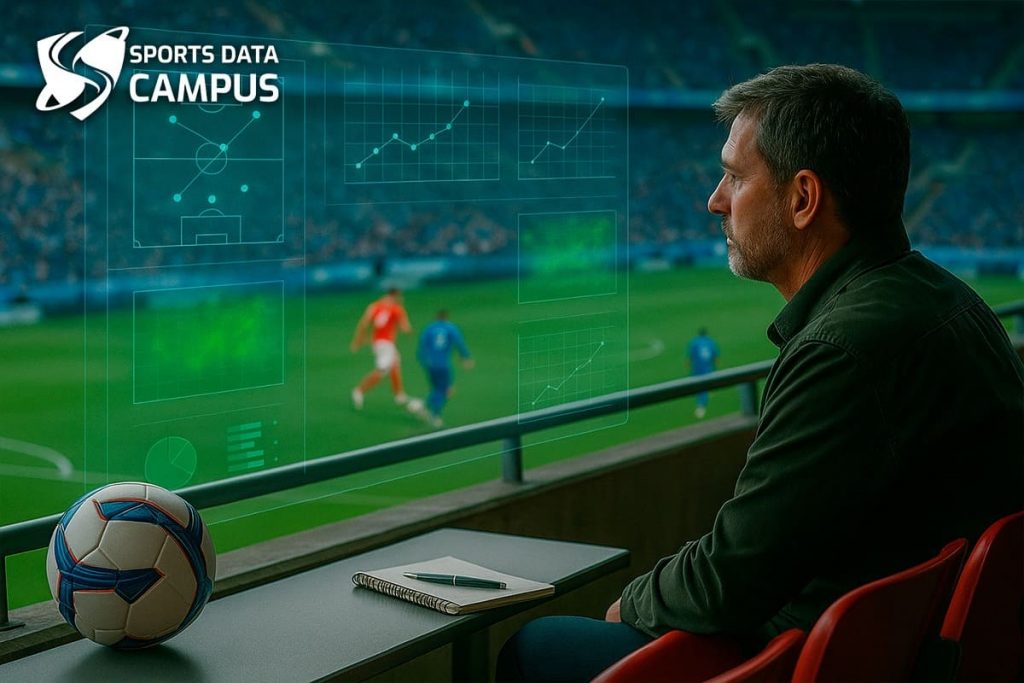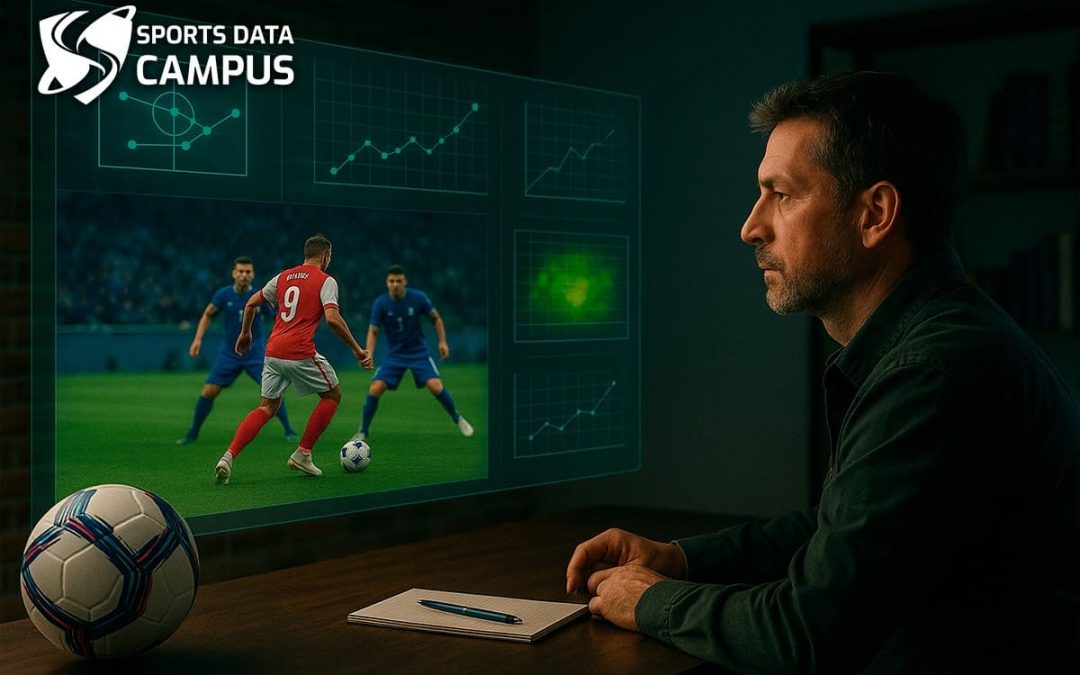Being a football scout takes more than just passion for the game. This profession demands specific skills, technical knowledge, and a true football mindset. It requires a deep understanding of the sport, an instinctive ability to anticipate plays, and a strategic vision that goes beyond statistics. For example, a scout doesn’t just assess a goal, but studies how the player positioned themselves to receive the pass, the pressure from the opponent, and the decision made in a split second.
What skills do you need to be a football scout?
Scouting blends observation, analysis, and communication, but it also demands a holistic approach and mastery of Big Data. Having this profile means interpreting the dynamics of the game through a lens that combines intuition, data, and advanced technology, allowing you to anticipate trends and make accurate decisions based on reliable information.
For instance, an expert who uses Big Data doesn’t just judge a striker by the number of goals scored, but also examines movement patterns, defensive contributions, and impact during fast transitions. These tools make talent identification more complete and objective.
Here are the key skills you need to develop:
- Analytical ability – Identify patterns of play, strengths, and weaknesses in both players and teams.
- Technical knowledge – Understand modern football tactics and strategies, including systems of play and concepts such as pressing or transitions.
- Attention to detail – Observe specific aspects such as positioning, individual technique, and decision-making under pressure.
- Communication skills – Produce clear, visual, and persuasive reports for coaches and executives.
- Use of technology – Operate data analysis software such as Wyscout, Hudl, or Big Data tools to assess performance.
An expert who uses Big Data doesn’t just assess a striker’s performance by the goals scored, but also analyses movement patterns, defensive contributions, and impact during quick transitions
These skills are not only essential for identifying talent but also for assessing long-term potential and providing well-founded recommendations that influence a club’s decisions.
What qualities are required
Beyond academic training, these personal and professional traits make the real difference in your career:
- Passion for football and data – Have a deep interest in the sport and a constant curiosity to learn, including how Big Data can transform player and team analysis.
- Dedication and perseverance – Invest time attending matches, analysing videos, and using advanced technological tools to support your evaluations.
- Networking – Build relationships with other professionals in the field, coaches, and executives to gain opportunities and share knowledge about the use of Big Data.
- Adaptability – Be ready to work with ever-evolving technologies such as visualisation and data analysis platforms.
- Resilience and objectivity – Handle stress, interpret data accurately, and maintain an impartial outlook in your assessments.
Becoming an expert in this area is not only a challenging profession but also an opportunity to directly impact a team’s success through a data- and technology-driven approach.

Monchi a role model
The work of these experts is vital for discovering talents that might otherwise go unnoticed. A true benchmark in this field is Monchi, known as Ramón Rodríguez Verdejo, whose ability to identify and sign players at low cost, develop them, and later sell them for high fees has left a lasting mark on world football.
The ideal professional profile should focus not only on observing players during matches but also on conducting a detailed analysis of their long-term potential. Through his innovative approach, Monchi has shown that a great scout must have a strategic vision to identify young players with hidden abilities that can be developed over time. Rather than focusing on the most visible players, Monchi has targeted lesser-known talents, enabling him to make smart and efficient signings.
A good scout must have a strategic vision to identify young players with hidden abilities that can be developed over time. This approach demands a blend of intuition, data analysis, and technical assessment
This type of approach requires a combination of intuition, data analysis, and technical evaluation. These professionals must be able to use the most advanced tools to assess player performance, just as Monchi has done by incorporating data analysis into his decision-making. This has led to more informed and less subjective decisions, optimising the talent identification process.
Moreover, the ideal scout must look beyond the signing itself and focus on player development. Monchi has shown his ability not only to identify talent but also to nurture it, ensuring that players reach their full potential. For future scouts, his method stands as a model to follow, demonstrating how the combination of strategic vision, technology, and development can transform scouting into a key tool for any club’s success.
Where to find the best training to become a football scout
Answering the question posed in the title “What to Study to Become a Football Scout?”, the Master’s Degree in Scouting Applied to Football from Sports Data Campus stands out as the most comprehensive and recognised programme in the field.
This course not only teaches you how to analyse players and teams but also trains you to use state-of-the-art technological tools. With a strong focus on practical cases and an innovative methodology, it prepares you for a successful career in professional football.
Invest in your future, enhance your skills, and become a leading professional. Take your passion for football to the next level.
Fill in the form below to receive more information about the Master’s Degree in Scouting Applied to Football

